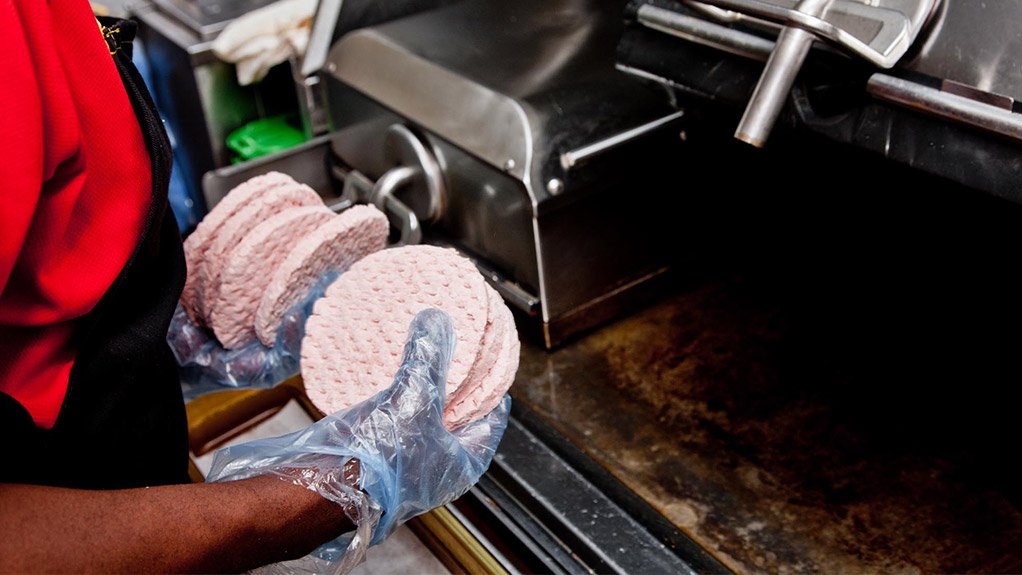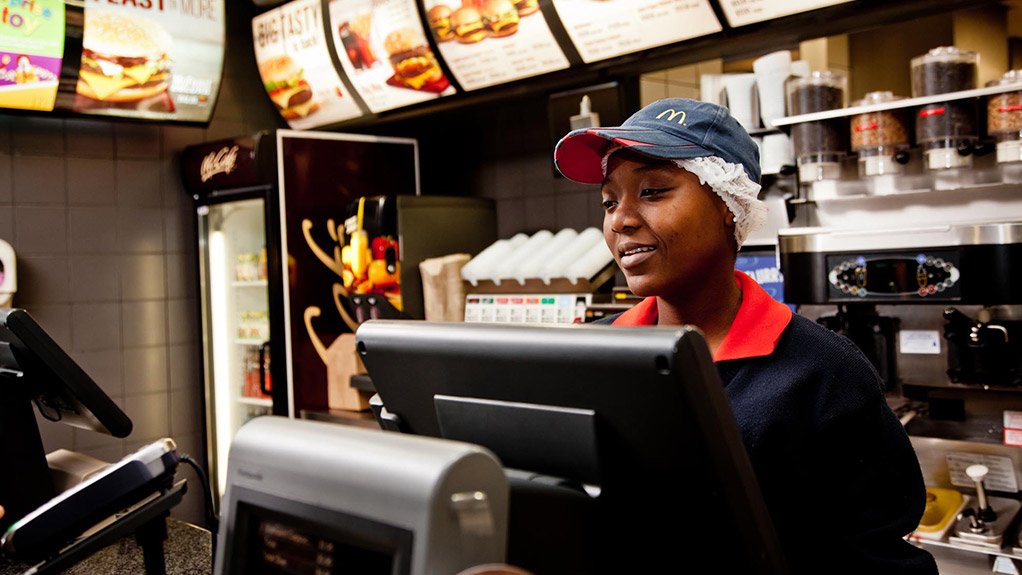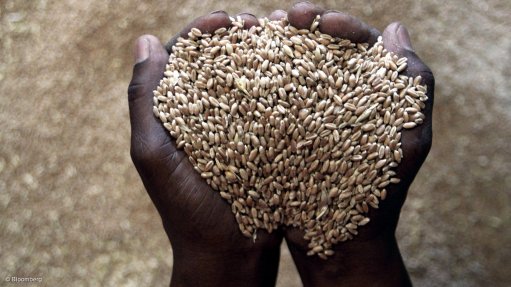McDonald’s SA suppliers showcased through new website to squash rumours
Fast food franchise McDonald’s South Africa (SA) is continuing its transparency journey with the launch of knowourfood.co.za, a digital platform, supported by videos, detailing the ingredients used by the company, showcasing suppliers and manufacturing processes.
“Customers are looking for transparency and more information to make informed food choices and through this programme we hope to demonstrate our pride in the food we serve to our customers,” McDonald’s SA chief marketing officer Daniel Padiachy told a media briefing on Thursday.
He explained that the company’s transparency journey started with an Open Door programme, implemented about 18 to 24 months ago, where customers were invited to go behind the scenes at restaurants to witness McDonald’s SA’s quality, service and cleanliness standards.
The two-phase ‘Know Our Food’ programme, McDonald’s SA said, demonstrated its “ongoing commitment to engage openly about their practices and products”.
In Phase 1, customers would be able to access answers to the most commonly asked questions about McDonald’s food through the dedicated website and Ask Google, using the Google Voice Search function on mobile devices as of May 15. Phase 2 was still under way.
In a video answering the question: “Are McDonald’s burgers 100% beef?”, the consumer is introduced to McDonald’s SA quality assurance manager Amesha Mohun, who visits Karan Beef’s feedlot outside Sasolburg, in Gauteng, where cattle are reared for the company’s beef supply.
“You cannot expect good production and health from an animal that is abused,” Karan Beef feedlot veterinarian Dr Dirk Verwoerd explains, highlighting Karan Beef’s constant manure removal programme, the feeding of animals three times a day and the constant availability of cool potable water.
Amesha then heads to Finlar Fine Foods, in City Deep, Johannesburg, where Karan Beef’s product is received for processing into McDonald’s patties.
Finlar Fine Foods operations director Essop Dawood explains that a combination of lean forequarters and fattier flanks are used. “We use 100% beef, which is ground and then shaped at the former. There is no fillers or additives in the product. The real trick is that we form the patties under extremely high pressure. This is then immediately frozen to preserve the quality of the product and shipped to McDonald’s,” he outlines. A McDonald’s beef patty has a 10:1 beef-to-fat ratio.
The patties are cooked on a double-sided grill and seasoned with salt and pepper, says McDonald’s SA restaurant manager Mildred Nzhinge, who notes that the patties are then kept at a safe holding temperature for 15 minutes and discarded if not used before this time lapses.
Answering the question “What percent of actual chicken is in your chicken McNuggets”, technical manager Silvia Visser at Finlar Fine Foods Cape Town, where all McDonald’s SA chicken products are produced, notes that these products are 100% chicken, containing chicken breasts and chicken skin and “some spices”. The coating for the McNuggets comprises wheat flour, emulsifier (E450i), salt, additives (E500), herbs, spices, vegetable powder (celery), sunflower oil, maize flour, wheat starch, whey powder, water, phosphates and palm oil.
After being ground, the blend is pressed into the required shapes by a former, after which it goes through batter, breading and crispy tempura batter application processes before being par-fried, cooled down to minus 18 °C by a spiral freezer and packed.
McDonald’s SA currently uses both local and import chicken from Brazil. “Unfortunately, the volume of local chicken supply in SA does not meet the demands required in the industry. Therefore imported chicken is used in our supply chain,” the company says.
Answering “How are the French Fries so perfectly cut?”, McDonald’s SA supply chain consultant Donovan Raman travels to Lichtenberg, in the North West, to talk to McCain inbound supply potato manager Pieter Hollebrandse.
“McDonald’s requires the highest grades, so to be able to meet those standards we grow special varieties that go over an inspection and grading table, where they are sorted by workers … and then the clean product goes in a truck to our factory in Delmas,” explains Hollebrandse.
At the McCain processing plant in Delmas, in Mpumalanga, technical manager Theon du Preez points out that only A-grade potatoes, chosen for their appearance and size, are used to produce McDonald’s French fries.
The potatoes are graded, cleaned and peeled before they reach the plant’s cutting deck, at which point they are pushed at a high velocity through curring heads. After being cut, the fries pass through a hot water blanche to leach out any natural sugars and improve their appearance, get dried and par-fried, frozen, bagged and packed.
The fries are then cooked from frozen at McDonald’s SA restaurants, using a sustainably sourced vegetable oil, notes McDonald’s SA restaurant operations consultant Penny Mazibuko. “As a McDonald’s customer you will never be served fries that have been held more than seven minutes.”
McDonald’s SA’s transparency journey programme followed similar initiatives by McDonald’s in other countries, including the US, Canada, Australia and the United Arab Emirates.
Comments
Press Office
Announcements
What's On
Subscribe to improve your user experience...
Option 1 (equivalent of R125 a month):
Receive a weekly copy of Creamer Media's Engineering News & Mining Weekly magazine
(print copy for those in South Africa and e-magazine for those outside of South Africa)
Receive daily email newsletters
Access to full search results
Access archive of magazine back copies
Access to Projects in Progress
Access to ONE Research Report of your choice in PDF format
Option 2 (equivalent of R375 a month):
All benefits from Option 1
PLUS
Access to Creamer Media's Research Channel Africa for ALL Research Reports, in PDF format, on various industrial and mining sectors
including Electricity; Water; Energy Transition; Hydrogen; Roads, Rail and Ports; Coal; Gold; Platinum; Battery Metals; etc.
Already a subscriber?
Forgotten your password?
Receive weekly copy of Creamer Media's Engineering News & Mining Weekly magazine (print copy for those in South Africa and e-magazine for those outside of South Africa)
➕
Recieve daily email newsletters
➕
Access to full search results
➕
Access archive of magazine back copies
➕
Access to Projects in Progress
➕
Access to ONE Research Report of your choice in PDF format
RESEARCH CHANNEL AFRICA
R4500 (equivalent of R375 a month)
SUBSCRIBEAll benefits from Option 1
➕
Access to Creamer Media's Research Channel Africa for ALL Research Reports on various industrial and mining sectors, in PDF format, including on:
Electricity
➕
Water
➕
Energy Transition
➕
Hydrogen
➕
Roads, Rail and Ports
➕
Coal
➕
Gold
➕
Platinum
➕
Battery Metals
➕
etc.
Receive all benefits from Option 1 or Option 2 delivered to numerous people at your company
➕
Multiple User names and Passwords for simultaneous log-ins
➕
Intranet integration access to all in your organisation























